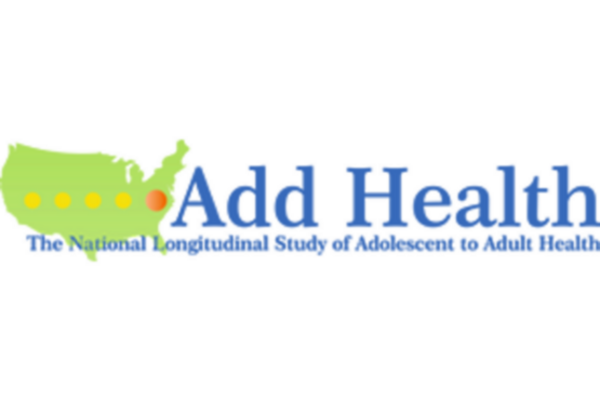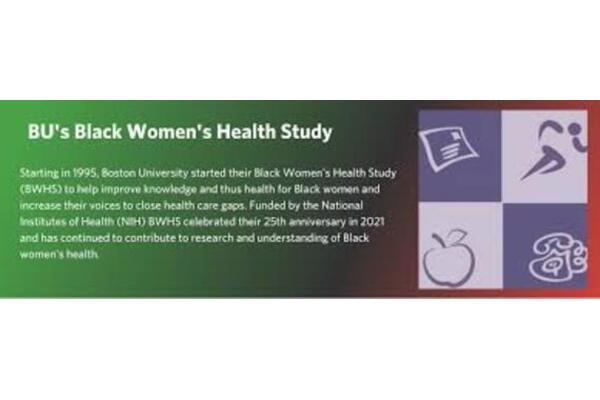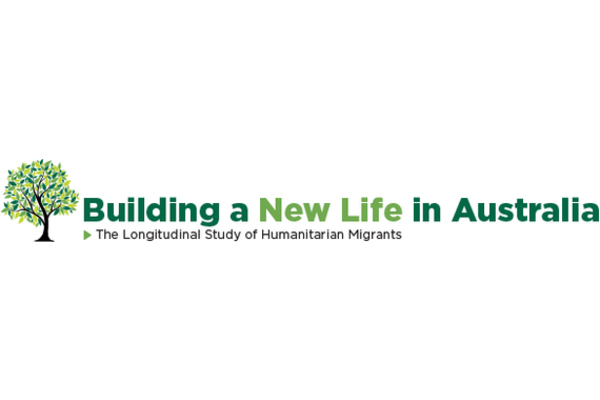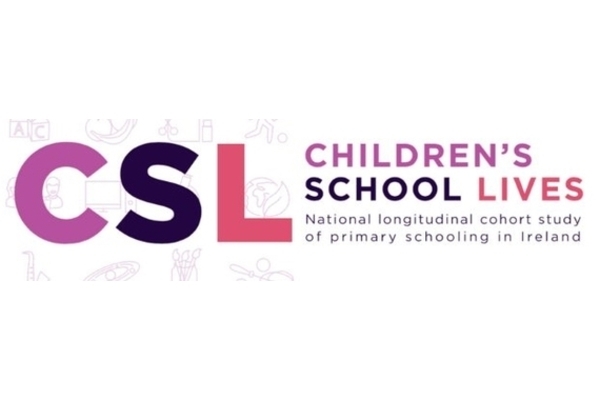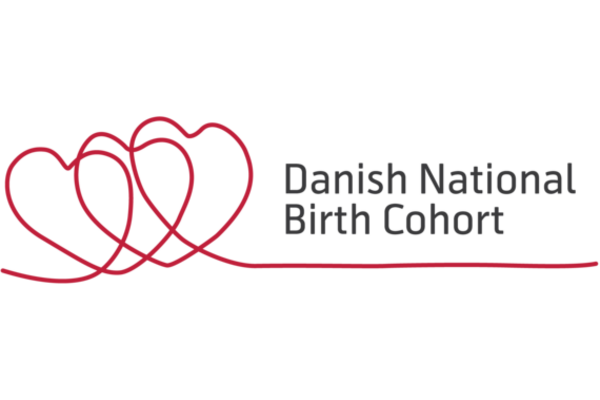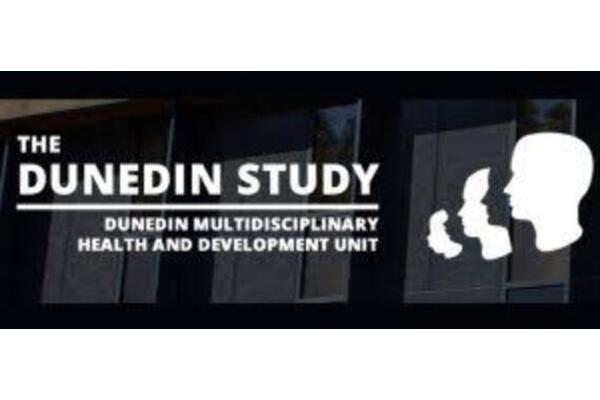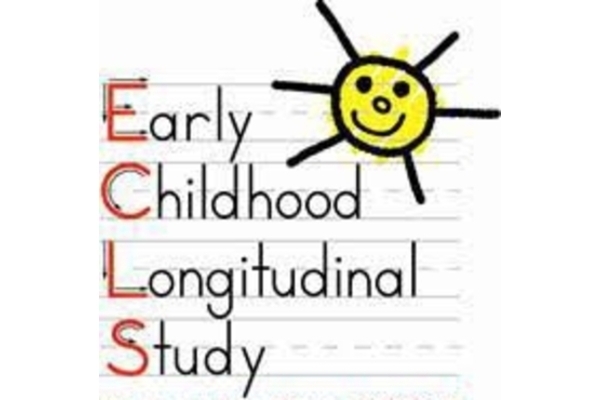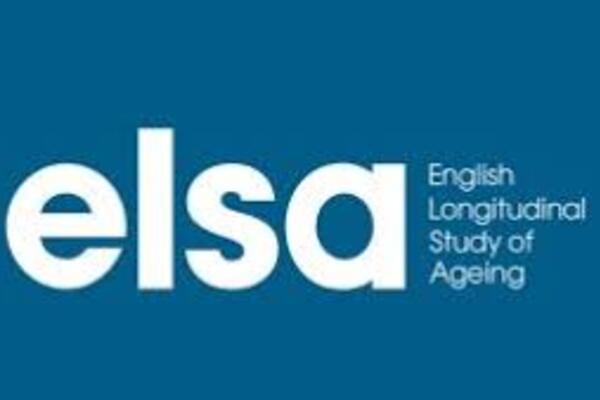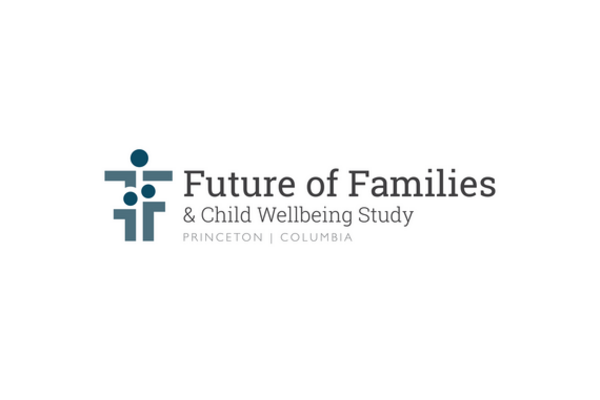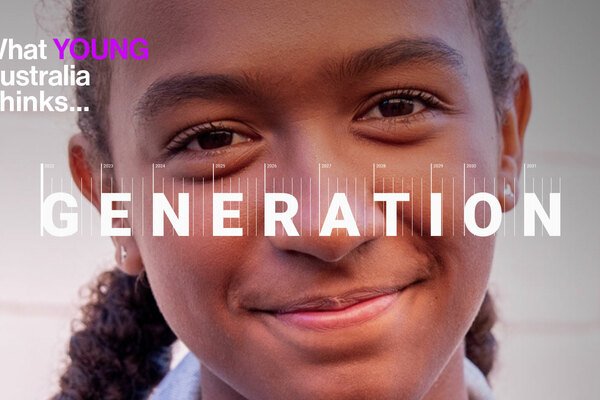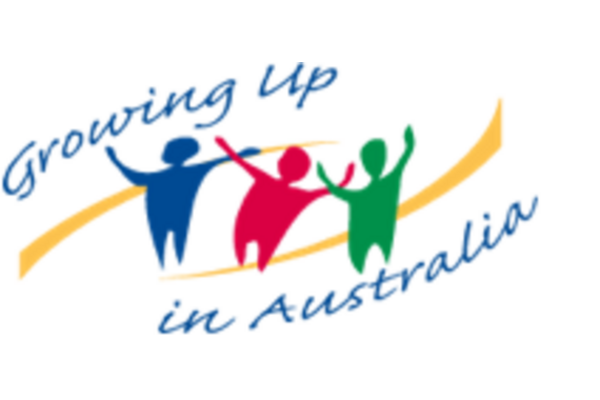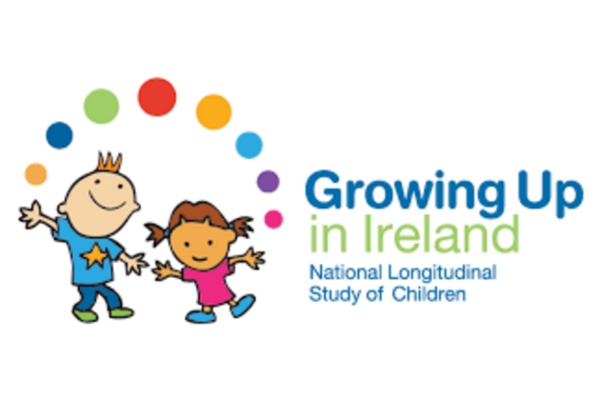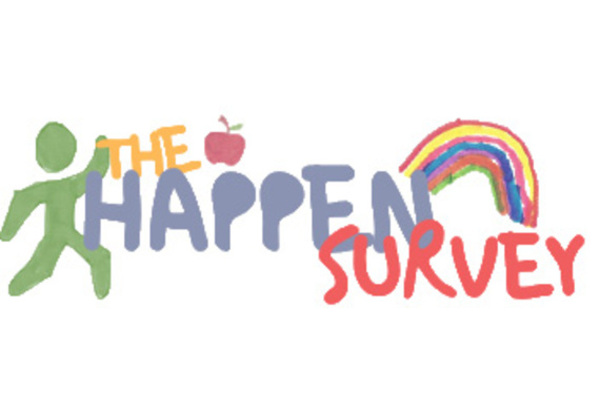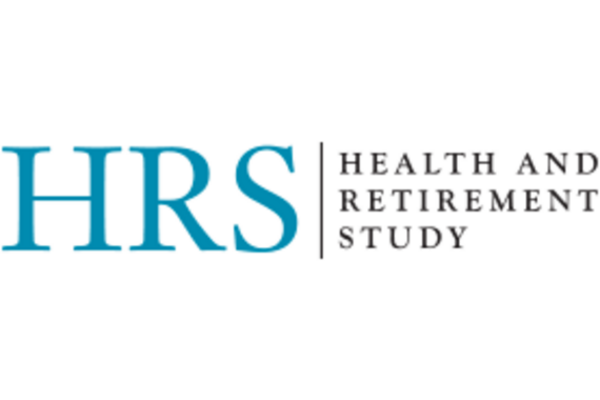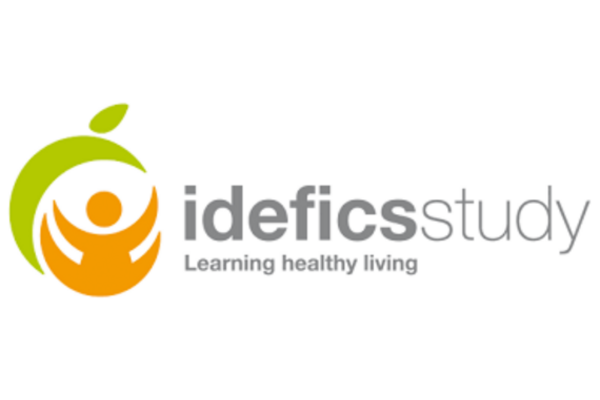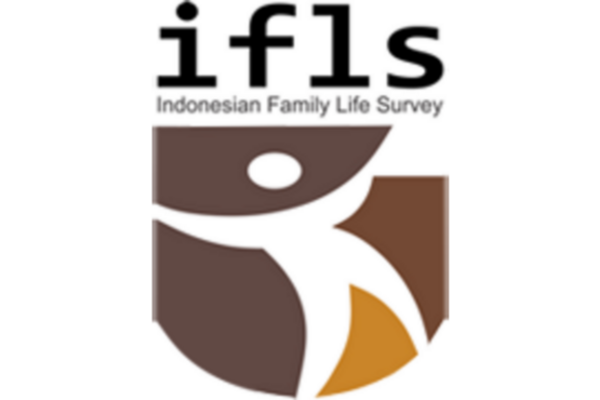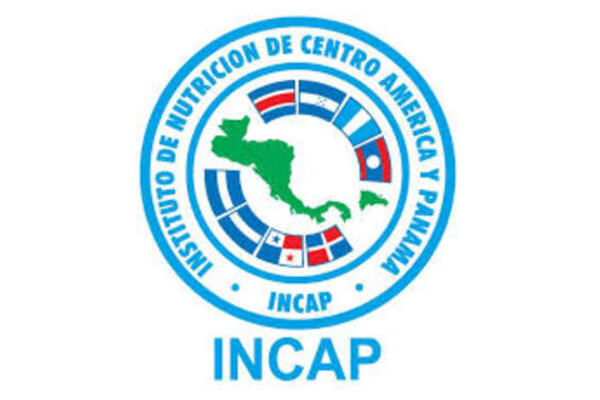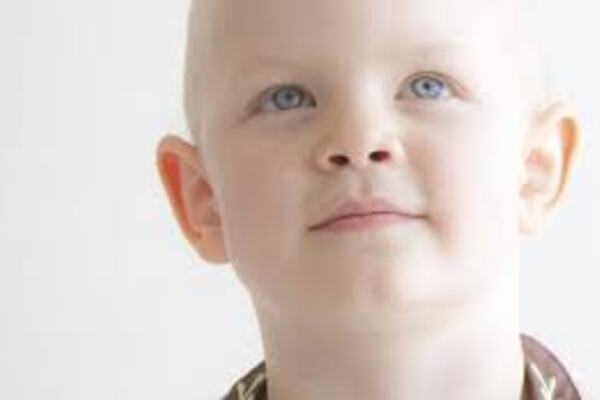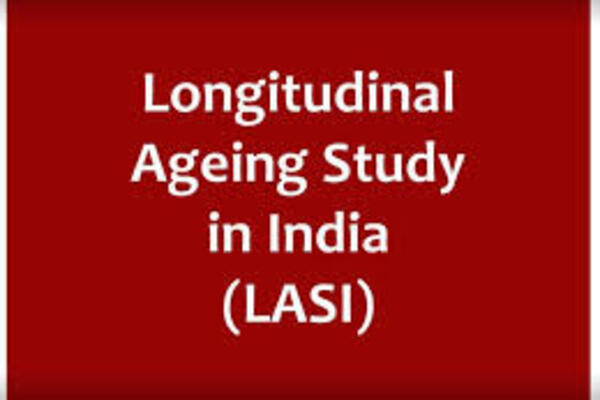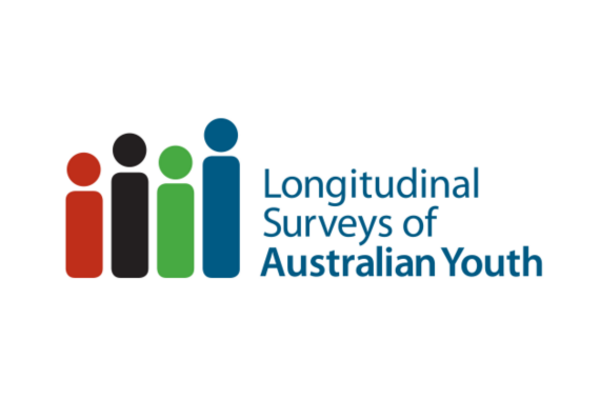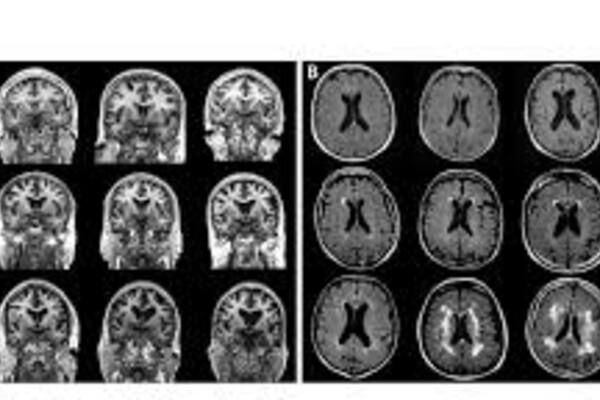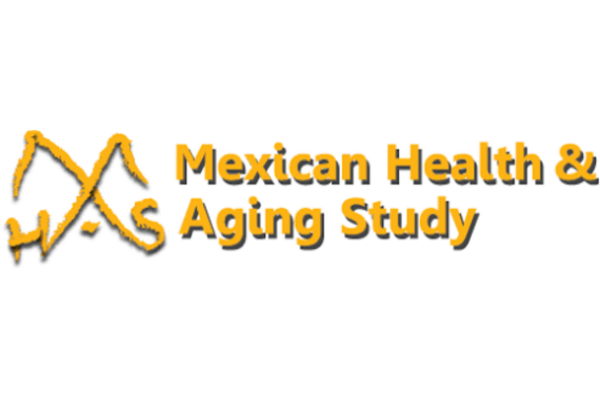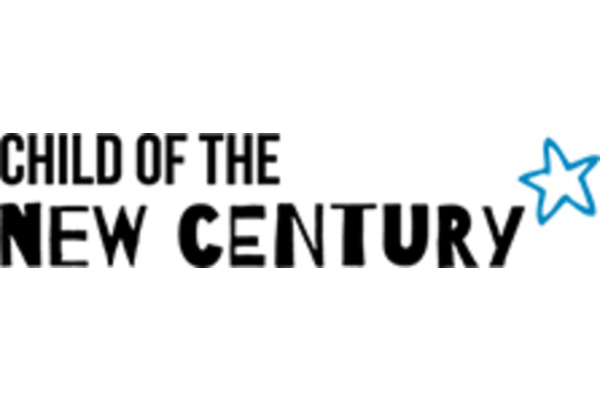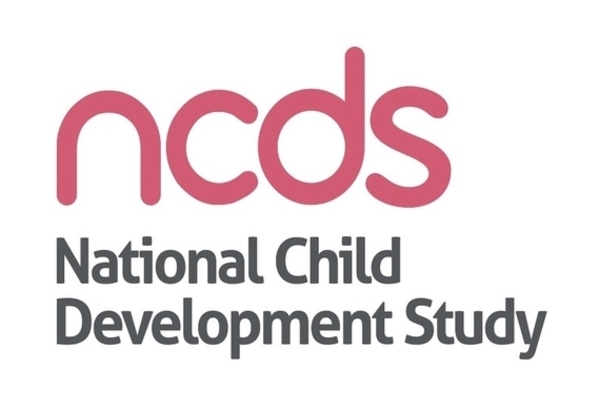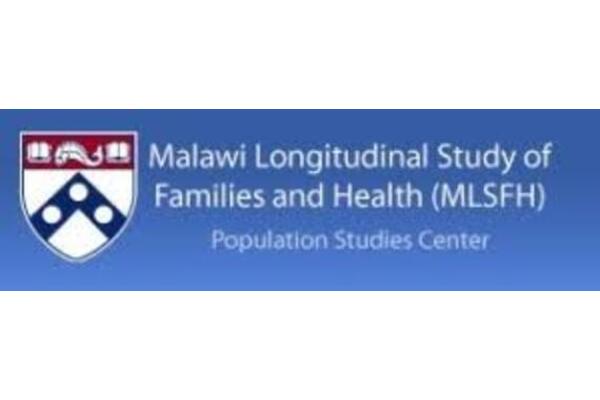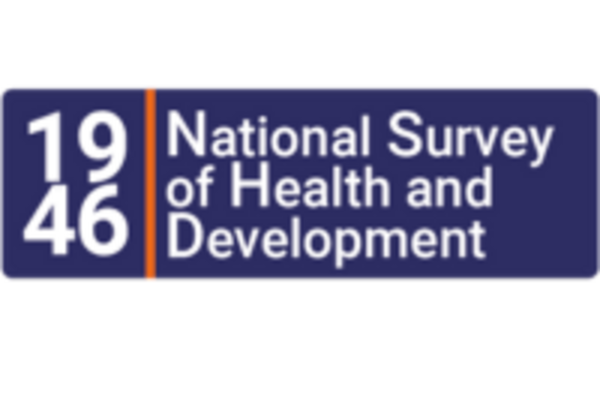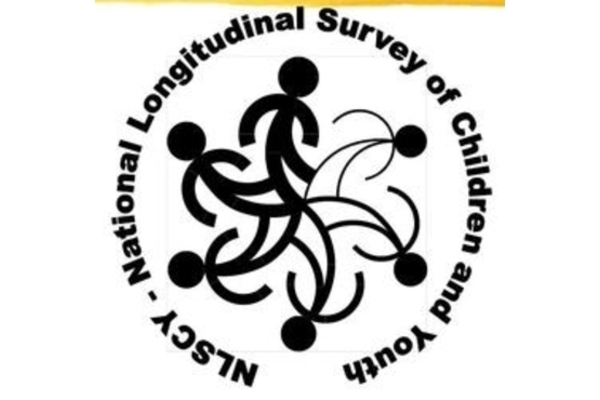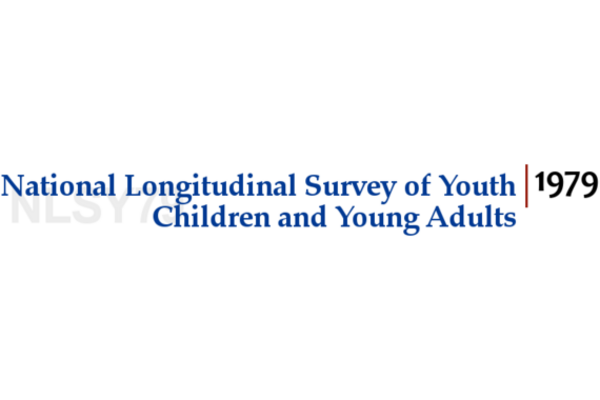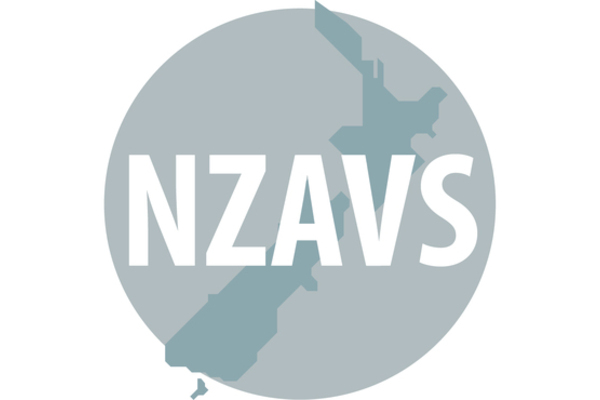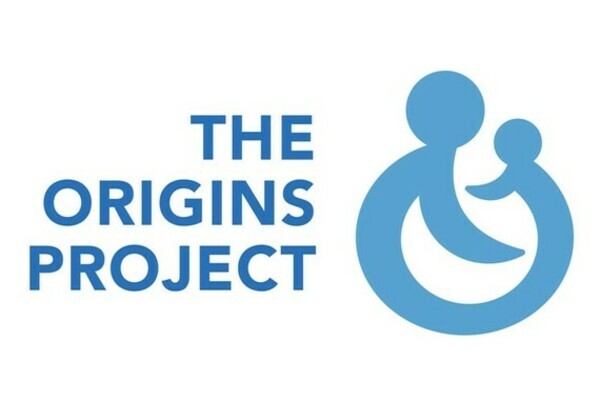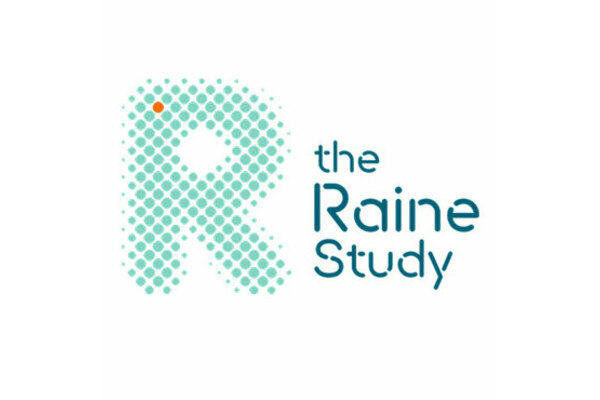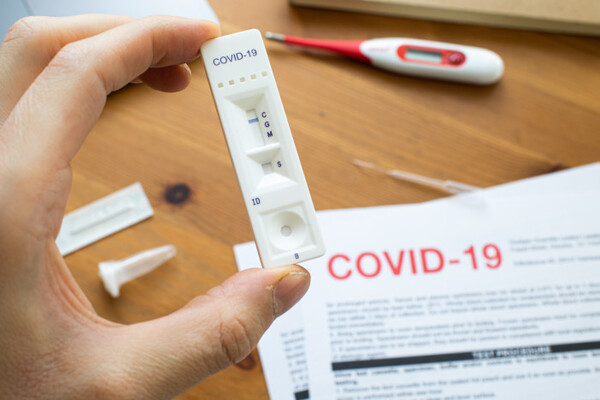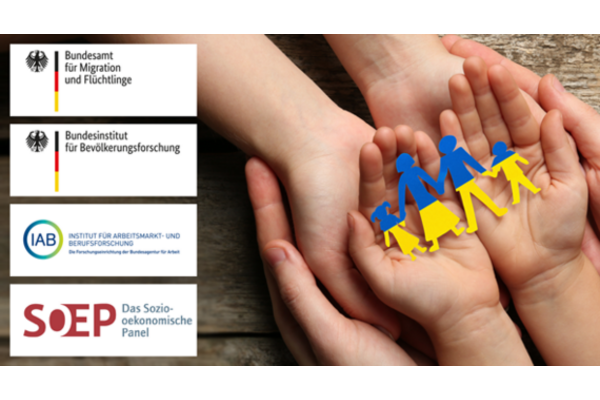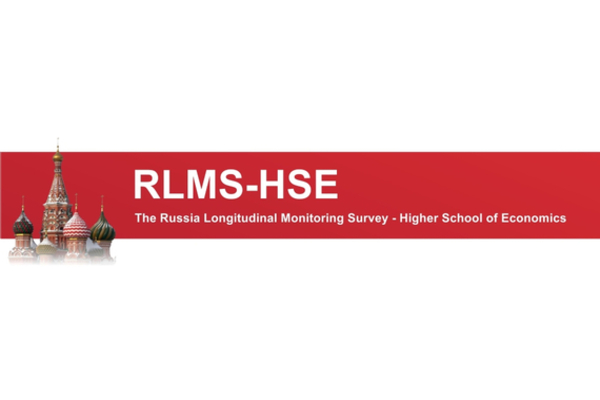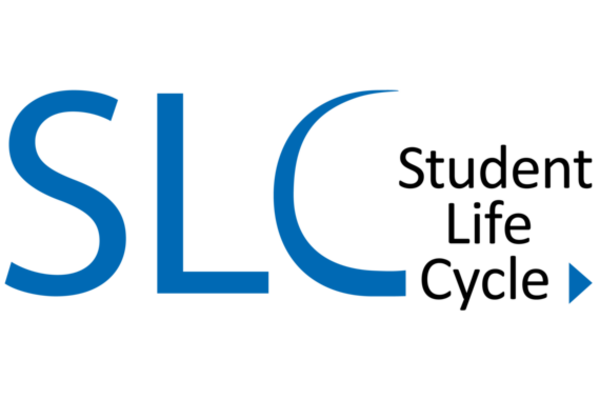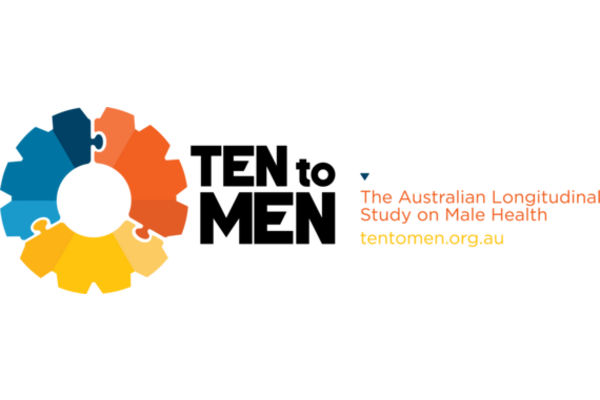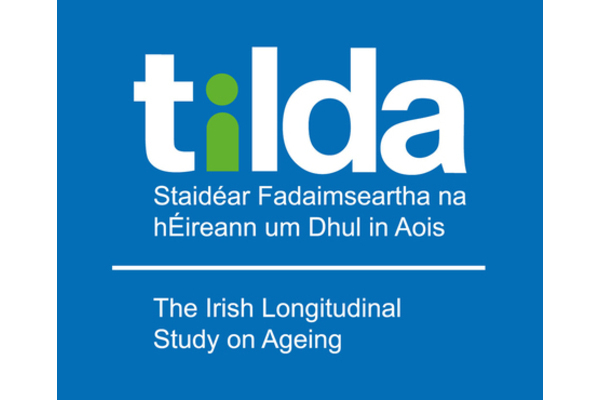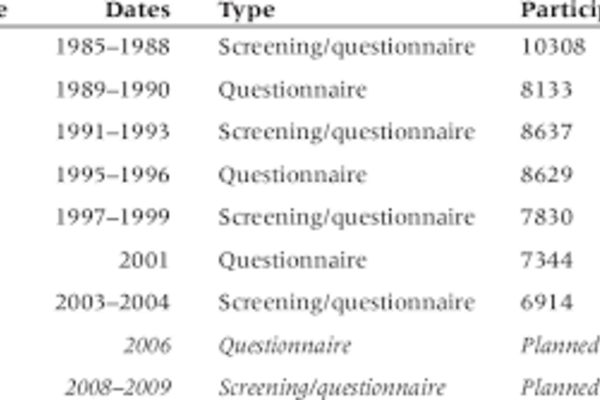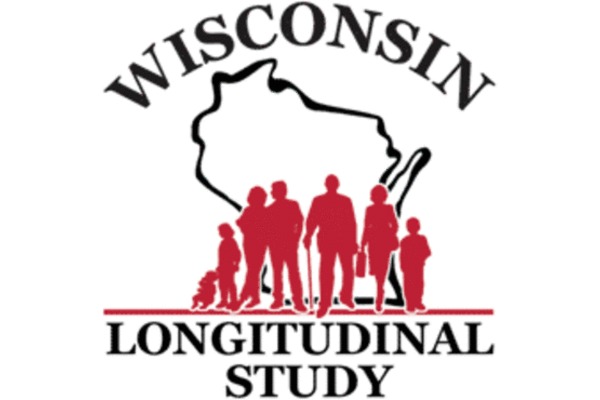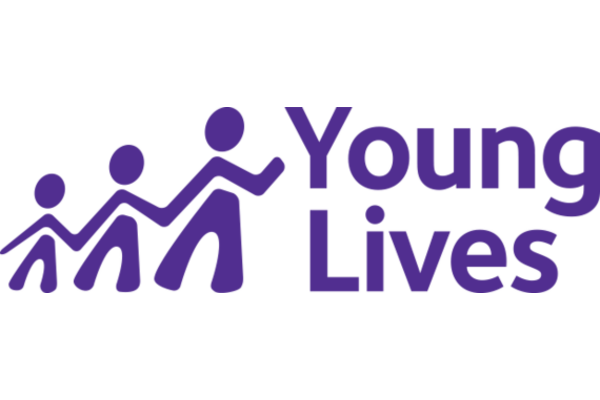Links to Studies
This page links to the websites of a number of studies. The SLLS Cohort Network welcomes additions and updates. Please send details (logo and website address) of your study to us at [email protected] and we will add them to this page. Studies are listed alphabetically.

HOW YOU CAN HELP
This bank of studies is ever-growing. If you are aware of others (not already listed), please forward details for inclusion to [email protected]
The National Longitudinal Study of Adolescent to Adult Health (Add Health) is a longitudinal study of a nationally representative sample of over 20,000 adolescents who were in grades 7-12 during the 1994-95 school year, and have been followed for five waves to date, most ...

Based at the University of Bristol, Children of the 90s, also known as the Avon Longitudinal Study of Parents and Children (ALSPAC), is a world-leading birth cohort study. Between April 1991 and December 1992 more than 14,000 pregnant women were recruited into the ...

The Barwon Infant Study is a longitudinal birth cohort study. This means that BIS researchers are actively following our participants over time as they grow and develop—from pregnancy into infancy and childhood. BIS is designed to collect information at key timepoints that ...
The Black Women’s Health Study (BWHS) is a prospective follow-up study of 59,000 self-identified Black/African American women from across the U.S. which began in 1995. The study’s major goal is to assess risk factors for cancers and other major illnesses in Black women.
The Born in Bradford Study tracks the health, development, and well-being of mothers and children from pregnancy onwards, collecting extensive data over time to understand health outcomes; data is securely managed under strict ethical oversight and ...
The Born in Wales study aims to develop the evidence base to understand the current influences on family health and well-being and how these affect subsequent childhood health and education. This work can be used to design and inform policies supporting changes to improve ...
The 1970 British Cohort Study (BCS70) is following the lives of around 17,000 people born in England, Scotland and Wales in a single week of 1970. Over the course of cohort members’ lives, BCS70 has collected information on health, physical, educational and ...
Building a New Life in Australia (BNLA) is the first longitudinal study of its kind that examines the same group of humanitarian migrants settling into a new life in Australia. The study aims to gain insight of the factors that help or hinder the successful settlement of ...
The Canadian Longitudinal Study on Aging (CLSA) is a large, national research platform on health and aging allowing researchers to answer critical questions on the biological, medical, psychological, social, lifestyle and economic aspects of aging, disability and disease.
The China Health and Retirement Longitudinal Study (CHARLS) aims to collect a high quality nationally representative sample of Chinese residents ages 45 and older to serve the needs of scientific research on the elderly. The baseline national wave of CHARLS is being fielded in ...
The Christchurch Health and Development Study (CHDS) has been in existence for nearly 50 years. During this time we have followed the health, education, and life progress of a group of 1,265 children born in the Christchurch (New Zealand) urban region in mid-1977.
The CONtributions of social NEtworks to Community Thriving (CONNECT) Study aims to help understand the best ways to promote good mental health among racially minoritised communities. Minoritised comm-unities, which include those who have been historically excluded ...
Ireland’s first in-depth study of primary schools contributing to the development of national policy, informed by the voices of children, their families, their teachers and school leaders. A landmark study, it explores the lived experiences of over 4000 children in 189 ...
The DLSY was initiated in 1968 by Professor Erik Jørgen Hansen as a follow-up on several earlier studies of educational outcomes among young people in the mid-1960s (e.g., Hansen 1968). The purpose of the 1968 DLSY survey (at the time it was not known that the DLSY would ...
Recent research supports the view that the time from conception to childhood is important for health in later stages of life. Diseases such as cardiovascular morbidity, cancer, mental illnesses, asthma and allergy may all have component causes that act early in life.
The Dunedin Study has followed the lives of 1,037 babies born between 1 April 1972 and 31 March 1973 at Queen Mary Maternity Hospital, Dunedin, New Zealand, since their birth. The Study is now in its fifth decade and has produced over 1,300 publications and reports, many of ...
Since 1990, the E3N French prospective cohort study has been following 98,995 French women born between 1925 and 1950, and affiliated to the health insurance provider of the national education system (MGEN). The E3N cohort study focuses on lifestyle, diet, ...
The Early Childhood Longitudinal Study (ECLS) program provides important information about children's knowledge, skills, and development from birth through elementary school. For more than 20 years, the ECLS program has helped educators, families, researchers, ...
Elfe is France’s first nationwide scientific study of children, tracking them from birth to adulthood. We are looking at many varied aspects of their lives, from the perspectives of health, social sciences and the environment. By monitoring the children at regular intervals, we ...
The English Longitudinal Study of Ageing (ELSA) is a unique and rich resource of information on the dynamics of health, social, wellbeing and economic circumstances in the English population aged 50 and older. The original sample was drawn from households that had ...
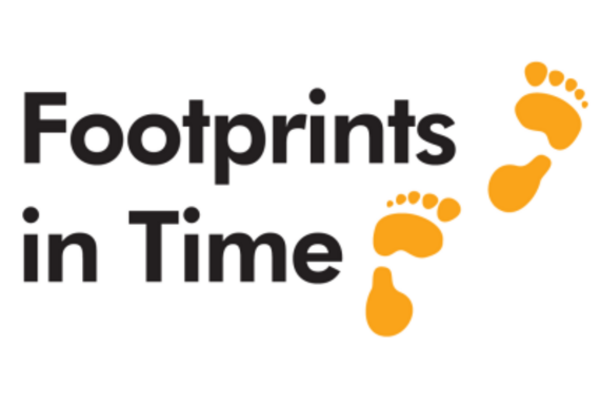
Footprints in Time: The Longitudinal Study of Indigenous Children (LSIC) is a study of Aboriginal and Torres Strait Islander children selected from different locations across Australia. LSIC aims to improve understanding of the lives of Aboriginal and Torres Strait Islander children, their ...

Australia’s largest study into health and ageing Since 2005, the 45 and Up Study has been following over a quarter of a million people to understand how Australians are ageing and the factors that promote good health and wellbeing. Thanks to the incredible dedication of our ...
FReDA - The German Family Demography Panel Study is a scientific study that addresses the issues of relationships and family life in Germany. For the study, several thousand people, country-wide, between the ages of 18 and 49 were randomly selected, along with their ...
The Fragile Families and Child Wellbeing Study has changed its name to The Future of Families and Child Wellbeing Study (FFCWS). The Future of Families and Child Wellbeing Study (FFCWS) is based on a stratified, multistage sample of about 5,000 children born in ...
The GENERATION study follows the journey of young Australians, as they transition to life beyond school. This landmark study of students from about 300 schools across the country aims to reflect the collective experience of young Australians – inside and outside school, while ...
The Generation R Study is a prospective cohort study from foetal life until young adulthood in a multi-ethnic urban population. The study is designed to identify early environmental and genetic causes of normal and abnormal growth, development and health from ...
Generation Scotland is Scotland’s largest family health study. The study's goal is to improve the understanding, prevention and treatment of conditions for current and future generations. Volunteers were first recruited in 2006 and at present the study has 40,000 ...
Generation Victoria, often called GenV, is a research program that is happening across all of Victoria, Australia. It is designed to help people (including doctors, hospitals, people who design community services, and more) to understand the things that might affect your, ...
The German National Cohort (NAKO Gesundheitsstudie) is Germany’s largest long-term population study, in which more than 205,000 randomly selected people are examined comprehensively in 18 study centres. At the start of the study in 2014, the NAKO ...
GLORI 2.0 (Global Longitudinal Research Initiative) tracks longitudinal research projects looking at child development trends and trajectories around the world. Check out this updated infographic that highlights the collection of longitudinal surveys ...
The Graduate Longitudinal Study New Zealand (GLSNZ) is the most comprehensive study of a country’s university graduates the world has ever seen. Commissioned by Universities New Zealand and supported by government funding, the study aims to determine the ...
Growing Up in Australia: The Longitudinal Study of Australian Children (LSAC) is a major study following the development of 10,000 young people and their families from all parts of Australia. It is conducted in partnership between the Department of Social Services ...
Growing Up in Ireland is the national longitudinal study of children and young people, a joint project of the Department of Children, Equality, Disability, Integration and Youth (DCEDIY) and the Central Statistics Office (CSO). Since 2006, the study has provided Government with an ...
The Growing Up in Hungary is a large-scale longitudinal survey initiated by the Hungarian Demographic Research Institute (HDRI) of the Hungarian Central Statistical Office (HCSO), with the objective to provide a comprehensive overview of children growing up in ...
Growing Up in New Zealand is Aotearoa's largest longitudinal study of child health and wellbeing, following the lives of more than 6000 rangatahi and their families. The rich information collected by the study is helping create flourishing futures for all young people in Aotearoa.
The Growing Up in Québec study, also called the Québec Longitudinal Study of Child Development, 2nd edition (QLSCD 2), was started to fulfill a need for knowledge about the development of children born in the early 2020s. This large-scale study will allow government and ...
Growing Up in Scotland is a longitudinal research study, tracking the lives of thousands of young people & their families from the early years, through childhood and now as they move into adulthood. GUS provides a free, unique resource for anyone carrying out research into ...
HAPPEN is a primary school network which brings together education, health and research in line with the new curriculum proposals for Health and Wellbeing. By taking part in the survey, teachers and pupils are empowered to make meaningful changes by gaining a better ...
The internationally-recognised Health and Employment After
Fifty (HEAF) Study began in 2013 and the main aim of the investigation is to find out whether working to older ages is good or bad for health and how often health affects people’s ability to work in different types ...
The University of Michigan Health and Retirement Study (HRS) is a longitudinal panel study that surveys a representative sample of approximately 20,000 people in America, supported by the National Institute on Aging and the Social Security Administration. Through ...
This internationally renowned Hertfordshire Cohort Study has been active since the late 1980’s, during which time it has contributed to the understanding of lifecourse influences on health in later life. The study comprises a nationally unique study of 3,000 men and women ...
The National Longitudinal Study of the High School Class of 1972 (NLS-72) is a large, diverse, nationally representative cohort study that began with a random sample of American high school seniors in 1972. Follow-up surveys were conducted between 1973 and 1986.
A cohort of 16,224 children aged 2–9 years from eight European countries participated at the first population-based survey of the Identification and Prevention of Dietary and Lifestyle Induced Health Effects in Children and Infants (IDEFICS) study. This first survey, defined as T0, was ...
The Indonesian Family Life Survey (IFLS) is an on-going longitudinal survey in Indonesia. The sample is representative of about 83% of the Indonesian population and contains over 30,000 individuals living in 13 of the 27 provinces in the country. The first wave of the IFLS (IFLS1) was ...
From 1969-1977 the Institute of Nutrition of Central America and Panama (INCAP) conducted a large supplementary feeding trial in four rural Guatemalan villages, the INCAP Longitudinal Study. Subsequent follow-up studies occurred in 1988-2007 by tracking the original ...
The International Childhood Cancer Cohort Consortium (I4C) study possibly provides the greatest opportunity for finding a preventable cause of childhood cancer. We aim to examine associations between environmental exposures and the incidence of childhood cancers by ...
By analyzing the Japanese Study of Aging and Retirement (JSTAR) data, researchers can track the characteristics of the Japanese elderly population in terms of both their specificity and universality in the world. In this sense, JSTAR is Japan's first-ever globally ...
Journeys Home: A Longitudinal Study of Factors Affecting Housing Stability was an important national survey about the living and housing challenges of Australians. Data collection for the study is now complete. The study aimed to improve understanding of the ...
The KIT project (Kids in Taiwan: National Longitudinal Study of Child Development and Care) is a long-term study focusing on children in Taiwan. The study is designed to create a complete database that collects longitudinal information of child development.
The purpose of KLoSA is to create the basic data needed to devise and implement effective social, economic policies to address the trends that emerge in the process of population ageing. The data will help identify and observe different dimensions of an aged society, build datasets that ...
Lifelines is a large, multi-generational, prospective cohort study that includes over 167,000 participants (10%) from the northern population of the Netherlands. Through the length, size and in-depth examination we provide many excellent opportunities for studies ...
Living in Australia: The Household, Income and Labour Dynamics in Australia (HILDA) Survey provides longitudinal data on the lives of Australian residents. The survey covers a wide range of aspects of life including: family dynamics, economic wellbeing, ...
With the support from National Institute on Aging (R01AG042778), LASI is a nationally-representative longitudinal survey that follows over 70,000 adults in India, aged 45 and older, over time. It represents all 35 states and union territories in India. LASI will provide a foundation for ...
'Our Future' is also known as The Longitudinal Study of Young People in England (LSYPE2). The study started at the beginning of 2013 and is managed by the UK's Department for Education. This is a major study of young people that will build upon the first LSYPE ...
The Longitudinal Study of American Youth (LSAY) was launched in the fall of 1987. A total of 5,945 students agreed to participate in the LSAY. During the middle school and high school years, the LSAY collected attitude information from students each fall and spring, administered ...
The Longitudinal Surveys of Australian Youth (LSAY) track young people as they move from school into further study, work, and other destinations. LSAY provides a rich source of information about young people and their pathways, helping researchers and policymakers ...
The Lothian birth-cohort studies are two ongoing cohort studies which primarily involve research into how childhood intelligence relates to intelligence and health in old age. The Lothian Birth Cohort studies of 1921 and 1936 have, respectively, followed up Lothian-based ...
The Mexican Health and Aging Study (MHAS) is a national longitudinal study of adults 50 years and older in Mexico. The baseline survey, with national and urban/rural representation of adults born in 1951 or earlier, was conducted in 2001 with follow-up interviews in 2003, ...
The Millennium Cohort Study (MCS), known as ‘Child of the New Century’ to cohort members and their families, is following the lives of around 19,000 young people born across England, Scotland, Wales and Northern Ireland in 2000-02. The study began with an original ...
Moe Kura is a longitudinal study focused on the role of sleep in the health and well-being of mothers and children in Aotearoa New Zealand (NZ). The leadership, design and conduct of the study is informed by Kaupapa Māori research principles and is positioned within a broader ...
The Mysore Birth Records Cohort is led by Dr. K. Kumaran, MRC LEC and CSI Holdsworth Memorial Hospital, Mysore, South India. It comprises men and women born in the Holdsworth Memorial Hospital (HMH), Mysore between 1934 and 1966. They were contacted and ...
Nacaps, the National Academics Panel Study, is a new longitudinal study of doctoral candidates and doctorate holders. This is the first study to systematically collect data on career paths of highly qualified academics in Germany – for the use of researchers, HEIs and academic ...
The 1958 National Child Development Study (NCDS) is following the lives of an initial 17,415 people born in England, Scotland and Wales in a single week of 1958. It started in 1958 at birth, as the Perinatal Mortality Survey. Over the course of cohort members’ lives, ...
The Malawi Longitudinal Study of Families and Health (MLSFH) is one of very few long-standing publicly-available longitudinal cohort studies in a sub-Saharan African (SSA) context. It is a long-term collaboration between the University of Pennsylvania (Penn, USA) ...
During the 1930s and 1940s there were worries about the falling birth rate in the UK, and concerns that perhaps, in those years before the National Health Service (NHS), the cost of having children was so great that people were deterred from parenthood. A survey was ...
The National Educational Panel Study (NEPS) is the largest long-term educational study in Germany. In seven starting cohorts, the development of competencies and the educational trajectories of a total of more than 70,000 participants are monitored - from early childhood ...
In 2012, NICOLA was set up to - explore why and how certain social, economic and biological factors are changing the lives of older people - to understand how health, lifestyle, financial circumstances and wellbeing change with age - to understand what it is like to grow ...
The National Longitudinal Study of the High School Class of 1972 (NLS-72) is a large, diverse, nationally representative cohort study that began with a random sample of American high school seniors in 1972. Follow-up surveys were conducted between 1973 and 1986.
The National Longitudinal Survey of Children and Youth (NLSCY) is a long-term study of Canadian children that follows their development and well-being from birth to early adulthood. The study is designed to collect information about factors influencing a child's social, emotional and ...
The NLSY79 Cohort is a longitudinal project that follows the lives of a sample of American youth born between 1957-1964. The cohort originally included 12,686 respondents ages 14-22 when first interviewed in 1979; after two subsamples were dropped, 9,964 ...
The New Zealand Attitudes and Values Study (NZAVS) is a large longitudinal national probability annual panel study of social attitudes, personality, ideology and health outcomes. The NZAVS began in 2009 and is curated by Professor Chris Sibley.
Next Steps (LSYPE) is one of the biggest and most important studies of your generation anywhere in the world. It began following 16,000 young people, born in 1989-1990, who were in Year 9 in 2004 at state or independent secondary schools across England. From the time you ...
In 1981, the Northern Swedish Cohort (NoSCo) longitudinal study began that included all pupils who attended or should have attended the last year of compulsory school in the municipality of Luleå. The population consisted of 1083 pupils (506 girls and 577 boys) and this ...
The Northern Sweden Health and Disease Study (NSHDS) is one of Sweden’s largest population-based cohort studies with biobank samples and includes approximately 150,000 unique participants. NSHDS has a very long follow-up period and documented high sample quality.
The Norwegian Mother, Father and Child Cohort Study (MoBa) is a study of the causes of disease among mothers and children. MoBa began to recruit pregnant women in 1999. Fathers were also invited. In 2008, the goal of more than 100 000 pregnancies was reached.
The ONS Longitudinal Study (LS) contains linked census and life events data for a 1% sample of the population of England and Wales. It contains records on over 500,000 people usually resident in England and Wales at each point in time and it is largely representative of the ...
ORIGINS is the largest study of its kind in Australia, following 10,000 children, from their time in the womb, over a decade to improve child and adult health. The unique long-term study is one of the most comprehensive studies of pregnant women and their families in ...
The Panel Study of Income Dynamics (PSID) is the longest running longitudinal household survey in the world. The study began in 1968 with a nationally representative sample of over 18,000 individuals living in 5,000 families in the United States. Information on these individuals ...
The Québec Longitudinal Study of Child Development (QLSCD), principally funded by the ministère de la Santé et des Services sociaux (MSSS) (Ministry of Health and Social Services) during its first phase, was designed to advance our knowledge of child development.
The Raine Study is the oldest pre-birth longitudinal study in the world, and one of the most successful and extensive studies of pregnancy, childhood, and adulthood ever undertaken. For the first time ever, the Raine Study will collect data from both Generation 1 and 2 ...
Launched in April 2020, the Real-time Assessment of Community Transmission (REACT) programme began as one of the world’s largest and most comprehensive coronavirus monitoring studies. The programme is led by a world-class team of researchers at Imperial ...
The aim of the ReGES project was to collect data that can be used to describe and analyze the newly immigrated groups and their educational trajectories. In addition, the ReGES project also conducted its own research on various topics. In addition to individual educational ...
The panel study “Refugees from Ukraine in Germany” is based on a register-based random sample based on the residents' registration offices, which enables representative results on Ukrainians registered in Germany since the beginning of the war. The panel survey was established in ...
The Russia Longitudinal Monitoring Survey (RLMS) is a series of nationally representative surveys designed to monitor the effects of Russian reforms on the health and economic welfare of households and individuals in the Russian Federation. These effects are measured by ...
The Swedish Panel Study of Living Conditions of the Oldest Old – SWEOLD is run by researchers from Aging Research Center at Karolinska Institutet. SWEOLD is an ongoing, nationally representative survey of the older population in Sweden. The first data collection ...
The Southampton Women's Study is the only study in Europe in which women from the general population were recruited when not pregnant and then those who subsequently became pregnant were followed through pregnancy and the children followed-up. Thus this study has ...
The Student Life Cycle Panel (SLC) accompanies school leavers with a higher education entrance certificate and university graduates on their way into the labour market in order to draw a comprehensive picture of educational decisions and courses, as well as labour market ...
The Stress, Development and Mental Health: TAM-cohort studies the life course from adolescence to midlife. The TAM cohort has followed study participants of a one age cohort through the ages of 16, 22, 32, 42 and 52, starting from the year 1983. The respondents all attended ...
Ten to Men: The Australian Longitudinal Study on Male Health is a study designed to help improve the health and wellbeing of boys and men. Ten to Men is a longitudinal study, so we aim to survey the same group of males every few years. It began in 2013 and generates ...
The Irish Longitudinal Study on Ageing (TILDA) is a large-scale, nationally representative, longitudinal study on ageing in Ireland, the overarching aim of which is to make Ireland the best place in the world to grow old. TILDA is designated as the WHO ...
Tracking Adolescents' Individual Lives Survey (TRAILS) is an ongoing, multidisciplinary research on the psychological, social and physical development of adolescents and young adults. More than 2500 participants participate in TRAILS, since their tenth or eleventh year.
Transitions from Education to Employment (TREE) is a large panel survey following up compulsory school leavers from all over Switzerland through their post-compulsory education and training and into employment and adulthood. The first TREE cohort (TREE1) ...
Understanding Society is the UK Household Longitudinal Study. The Study is based at the Institute for Social and Economic Research at the University of Essex. We follow our participants over a long period of time, giving us a long-term perspective on people’s lives.
Whitehall II - also known as the Stress and Health Study - was established in 1985 to investigate the causes of social inequalities in health and went on to recruit 10,308 participants from the British Civil Service. By combining over 35 years of data on social inequalities and chronic disease ...
The Wirral Child Health and Development Study (First Steps) started in 2006. The study was established to identify early social, emotional and biological risks and processes involved in the development of childhood conduct problems. We recruited first-time ...
The Wisconsin Longitudinal Study (WLS) is a long-term study of a random sample of 10,317 people who graduated from Wisconsin high schools in 1957. We’ve expanded the panel by also interviewing one sibling of the graduate and when available the graduate’s spouse and sibling’s ...
The Australian Longitudinal Study on Women’s Health (known as Women’s Health Australia to its participants) is the largest, longest-running project of its kind ever conducted in Australia. The population-based survey explores the factors contributing to the health and ...
Young Lives is a unique longitudinal study of poverty and inequality that has been following the lives of 12,000 children in Ethiopia, India (Andhra Pradesh and Telangana), Peru and Vietnam since 2001. Over two decades of research, Young Lives has generated unmatched insights into ...
The Youth Development Study (YDS) was initiated as a school-based study of adolescent children and their parents to examine the consequences of formative experiences in adolescence for mental health, value formation, educational achievement, and ...
The Zurich Longitudinal Studies (ZLS for short) include several extensive long-term studies that have been conducted at the University Children's Hospital Zurich since the 1950s. The studies originally aimed to describe various areas of child development in detail and thus ...

HOW YOU CAN HELP

